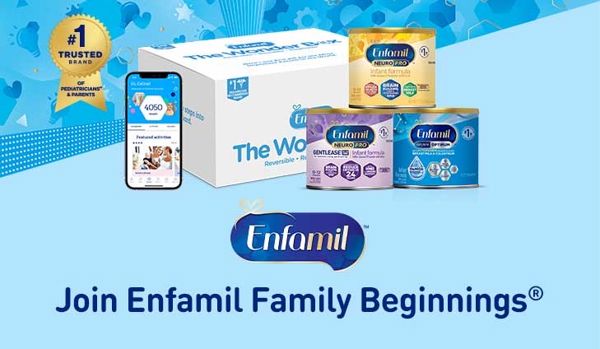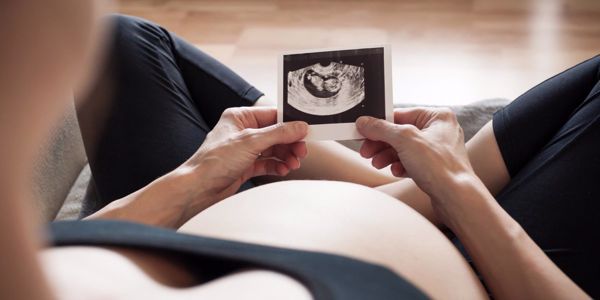When we learn we are expecting a baby, our minds and hearts are immediately filled with images and expectations for what life will be like for our child. Understandably, many parents desire a clear idea of what to expect for their future child so they can plan accordingly. This is particularly true in cases such as Down Syndrome, where children may require additional preparation or support.
What is a screening test?
There are two kinds of medical tests, screening and diagnostic. Screening tests provide the probable potential for a diagnosis, and diagnostic tests provide a confirmed diagnosis. Getting screened during pregnancy for Down Syndrome lets parents know the likelihood of their baby having Down Syndrome.
Who needs Down Syndrome screening?
Down Syndrome screening is a completely optional procedure. Parents at a higher risk for conceiving a baby with Down Syndrome will often be offered screening during their prenatal visits; however, these screening tests are available to everyone and, in some states, proffered to all parents regardless of circumstances.
A few factors can increase the chances of having a baby with Down Syndrome, such as:
- having a prior baby with Down Syndrome
- having a previous baby born with other chromosomal abnormalities
- having a family history of Down Syndrome or chromosomal abnormalities
- having a maternal age of at least 35
How does Down Syndrome screening work?
There are a few different screening tests used for Down Syndrome. When combined, the accuracy of the screening improves significantly.
During the first trimester, a blood sample is taken from the mother to measure the levels of pregnancy-associated plasma protein-A (PAPP-A) and human chorionic gonadotropin (HCG). If the levels for either (or both) are out of normal range, it can warn that additional testing may be needed. Also, during the first trimester, an ultrasound technician will measure the amount of fluid found at the back of the baby's neck. This is called a nuchal translucency test. If more fluid is detected than typically found, it can indicate a chromosomal abnormality, such as Down Syndrome.
During the second trimester, a screening test called a 'quad screen' uses a blood sample from the mother to look at four substances: HCG, alpha-fetoprotein, estriol, and inhibin A. Depending on these levels, in addition to previous screening results, doctors can generally determine whether or not a baby is at risk for Down Syndrome.
Doctors can also look for cells from the baby in the mother's blood, to closely examine the baby's DNA for any possible chromosomal differences. Parents should speak with their healthcare providers to learn which screening test options they offer.
How accurate is Down Syndrome screening?
Screening tests can recognize your likely potential for having a baby with Down Syndrome; however, only a diagnostic test can confirm with certainty whether or not your baby truly has Down Syndrome. Many screening tests today are a combination of multiple tests integrated into a single result. That result is as accurate as 99 percent, giving parents a good idea of what to expect and providing guidance as to whether or not they should pursue diagnostic testing.
What if my screening is positive for Down Syndrome?
If your screening results are positive for Down Syndrome, your healthcare provider will likely put you in touch with a genetic counselor, who can break down the results and answer any questions you may have. These counselors are experts who work with parents of children with non-typical chromosomes every day. In addition to any help or feedback they provide, they may also be able to put you in touch with a community or support group.
The Down Syndrome community is vast and welcoming. There are so many resources to connect you with other parents of children with Down Syndrome. You and your child have the opportunity to form connections with life-long friends, in-person and online. These friends can answer questions, share their experiences, and offer support. They will most likely have more advice and insight about doctors, events, and programs than you'll know what to do with!
Confirming a Down Syndrome diagnosis
In the past, screening tests were less accurate, and parents would sometimes receive positive results only to have their baby born without Down Syndrome. While this is still possible, it is significantly less likely than in the early years of screening.
With a high likelihood of accuracy these days, when screening tests come back positive for Down Syndrome, some families may wish to accept the results at face value and proceed in making any necessary preparations. Alternatively, other families may want to pursue a diagnostic test for a confirmed diagnosis.
Options for diagnostic testing include chorionic villus sampling (CVS), amniocentesis, and percutaneous umbilical blood sampling (PUBS).
These diagnostic tests have pros and cons, which you can weigh with your doctor, genetic counselor, partner, and loved ones.
A Down Syndrome diagnosis can be scary because it's new territory and possibly not how you expected your journey with your child to look. What we often forget, though, is that scary and unexpected experiences happen with all children! There will be many unique challenges ahead and much more joy than you know.







